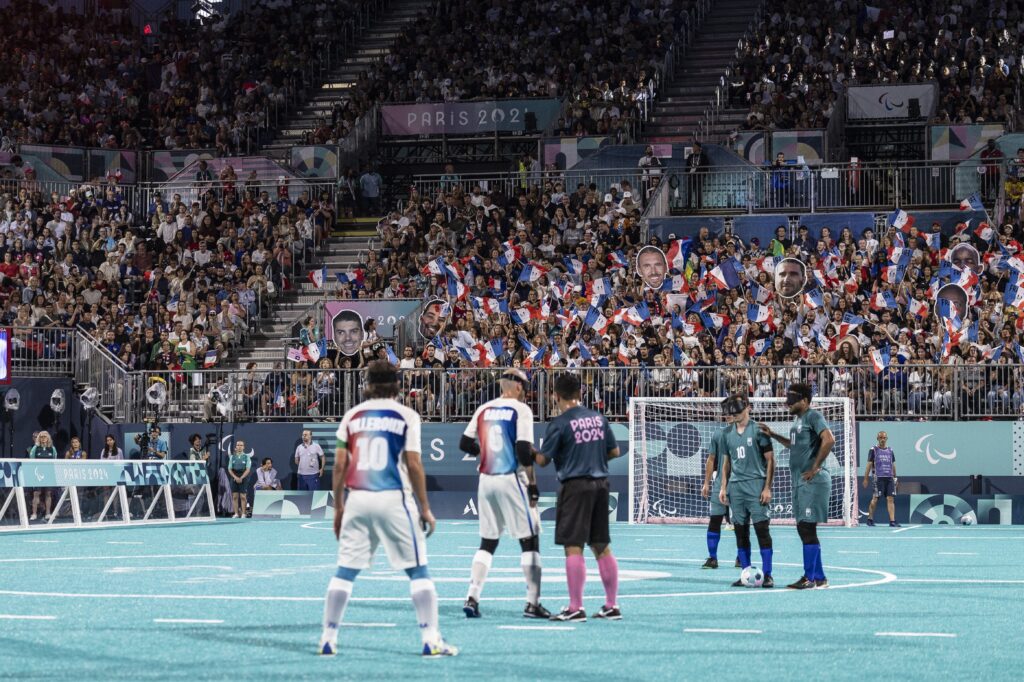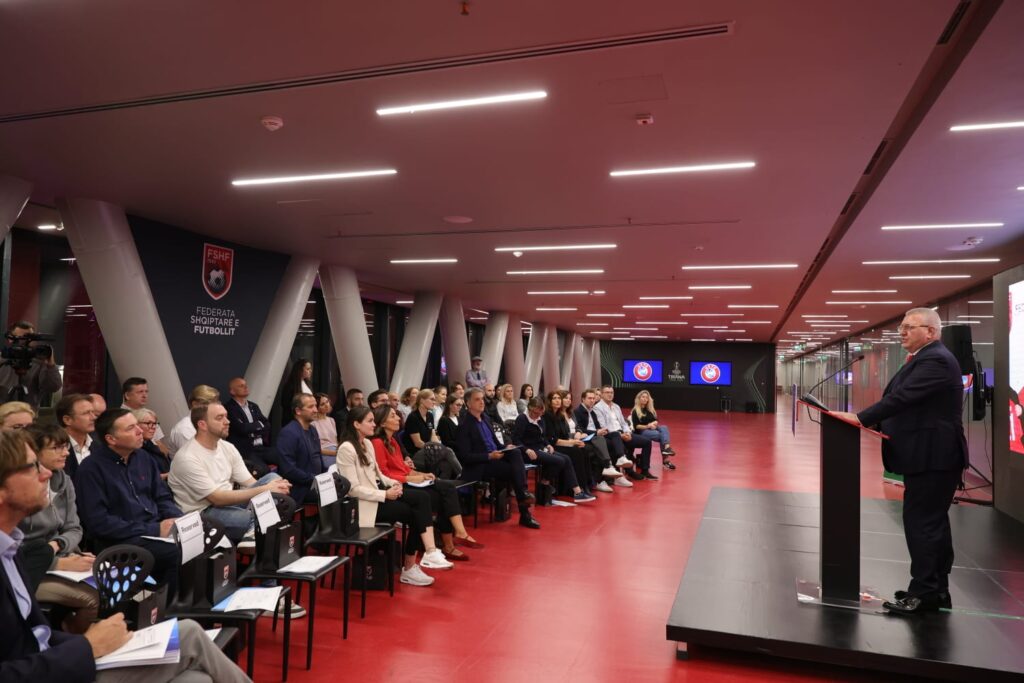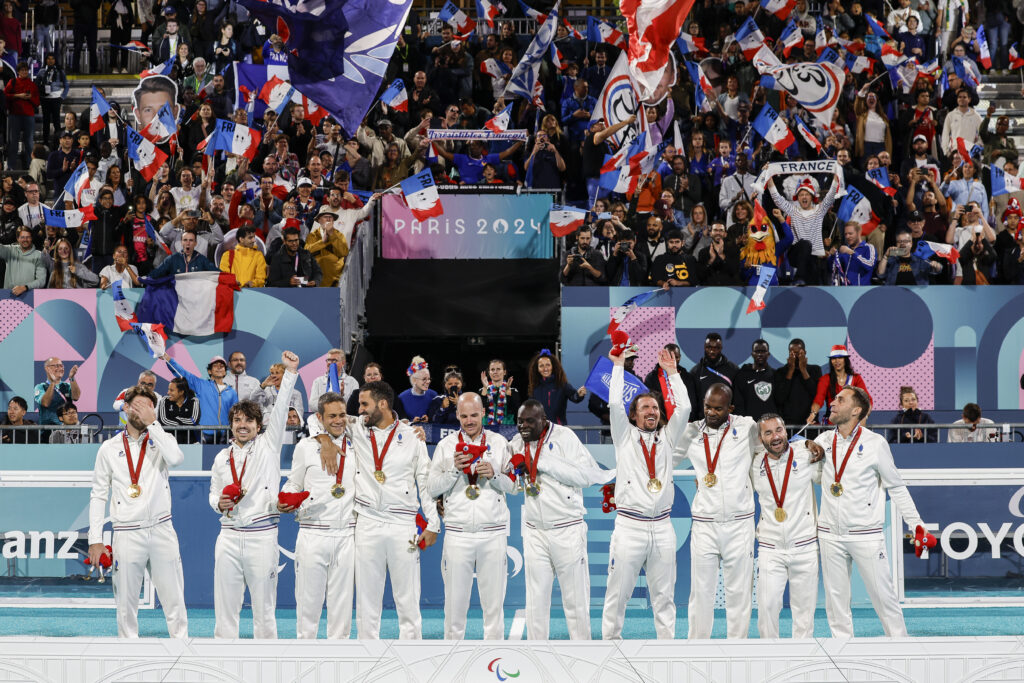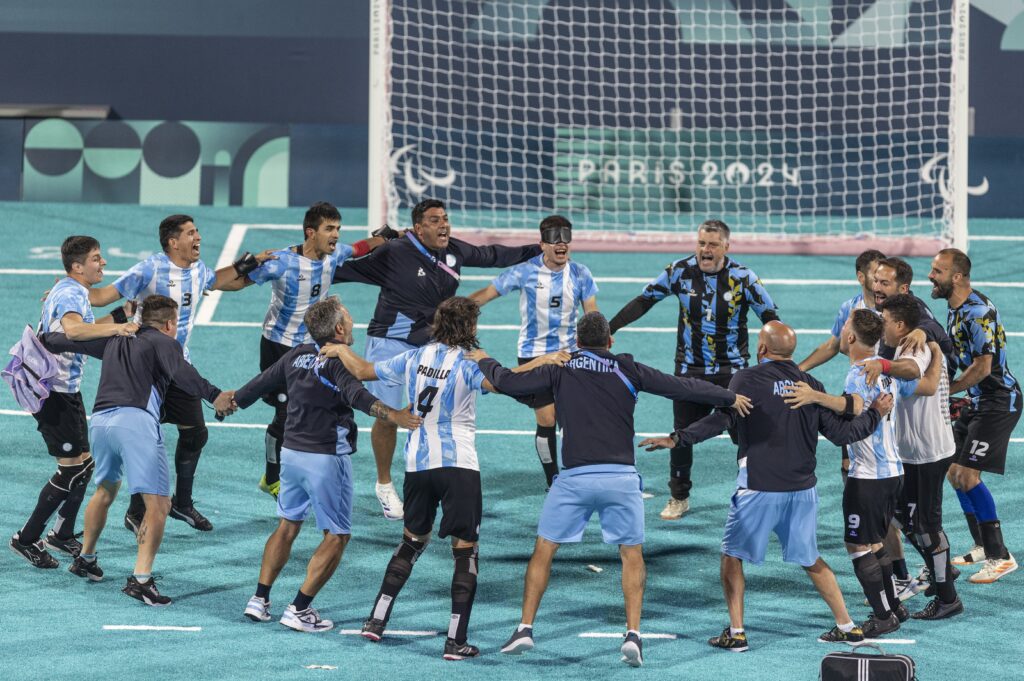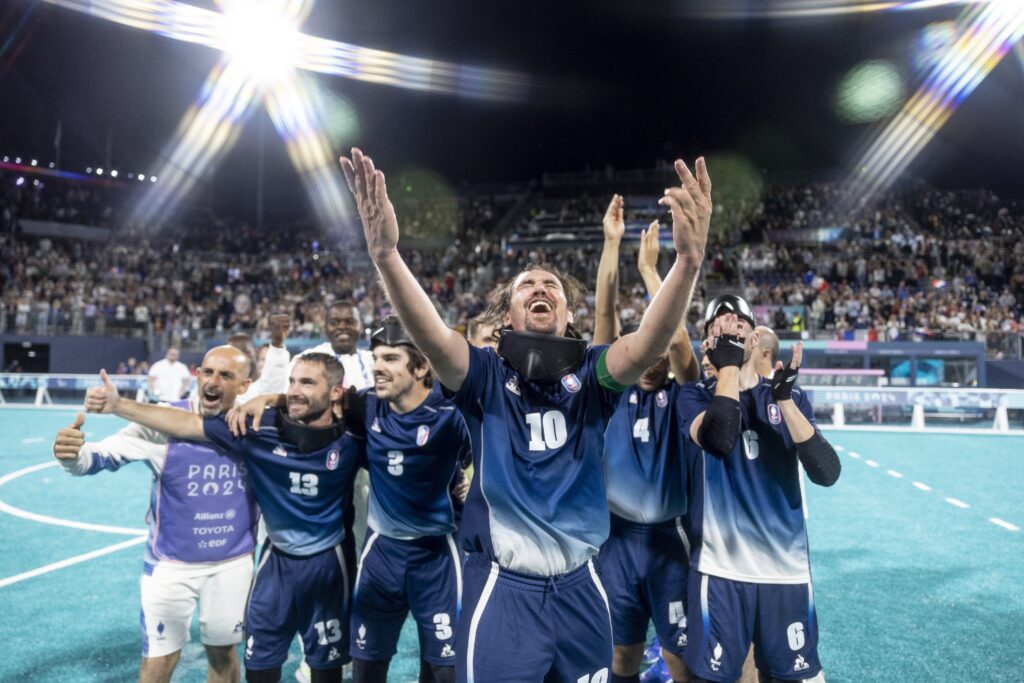News
European blind football project a huge success
Date: August 2, 2017
Category: Football
The IBSA Blind Football Development Project Europe, which concluded at the end of June, has been hailed a tremendous success by all involved.
The project ran from summer 2012 until the end of June 2017 thanks to an annual grant from UEFA.
Here are some of the key facts and figures from the achievements reached within the framework of the project:
– Training camps in 12 countries – Belgium, Ireland, Belarus, Bosnia & Herzegovina, Portugal, Denmark, Armenia, Sweden, Finland, Georgia, Romania and Austria – involving participants from 16 countries.
– 1st and 2nd IBSA Euro Challenge Cups, development tournaments involving emerging nations in blind football. The first was held in Prague in 2014 and the second in Thessaloniki in 2016. Eight emerging countries and one youth team took part in the tournaments.
– 1 173 blind footballs, 908 sets of standard eyeshades and 88 sets of black-out eyeshades (dark goggles) have been donated by IBSA to 39 countries. The total cash value of the equipment distributed is around 47 000 Euros.
– 80 referees from 20 countries have been trained in the rules of the game.
– 1st European youth camp in Hamburg, Germany, in summer 2015. Fourteen players and 11 coaches from six countries took part in the camp.
– First ever international women’s blind football training camp and tournament in Vienna, Austria, in May this year. Seventy-five people from 16 countries attended, including 60 women. Thirty-one women players took part, including 22 from 7 European countries, and 20 more women from European countries took part as referees, coaches, guides, support staff, etc.
– For the first time ever, earlier this year IBSA organised a qualifying event for its European Championships Division 1 tournament. The qualifier and division 2 championships were held in Bacau, Romania, in April 2017, and seven teams participated. This means that 15 countries will compete in IBSA European Championships (Divisions 1 and 2) in 2017, up from 10 in 2015.
– Exhibition matches at three UEFA finals: UEFA Champions League finals in Berlin in 2015 and Milan in 2016, and at the Europa League final in Stockholm earlier this year.

Caption: participants at the women's blind football camp and tournament in Vienna pose for a group photo.
Thanks to the project, IBSA estimates that between 38 and 40 European countries now have some type of blind football programme, ranging from elite countries who compete at the European Championships Division 1 to countries with small grassroots or school-based youth programmes.
IBSA is expecting news from UEFA in the coming days on a future partnership.
IBSA Football Committee Chair Ulrich Pfisterer reflected on the success of the project:
“The IBSA Football Committee is looking back now on the conclusion of the UEFA-funded European Development Project. We have seen many new countries being introduced to blind football…the European Championships having therefore for the first time a qualifying tournament…new countries to the sport have received blind footballs, supporting grassroot programmes and school sport.”
“We have also seen a well-attended clinic for blind women, giving reason to look positively into the future. A youth camp in Hamburg was also well attended, giving young players the chance to develop their game. We welcome UEFA´s engagement and hope for further projects in the future.”
IBSA President Jannie Hammershoi is convinced the project has helped raise the profile of the game:
“Five-a-side blind football has always been a popular sport for IBSA but in the last years under the UEFA-funded European Development Project it has progressed rapidly. Blind football has been introduced into increasingly more European countries, one of the most recent Denmark, where we held a successful training camp partly financed by this project in May of this year.”
“Also, we introduced blind football for women in a remarkable international training camp held in Vienna, Austria. As a result, blind football is now attracting many athletes, much more media attention and becoming more popular. IBSA appreciates the continued support of UEFA very much under the very capable hands of David Stirton, which has made all this possible.”
And for UEFA too, the partnership with IBSA has proved to be fruitful and beneficial. According to Peter Gilliéron, Chairman of the UEFA Fair Play and Social Responsibility Committee:
“The objective of the UEFA Football for All Abilities portfolio is to help create more grassroots playing opportunities for different types of football, such as for people who are blind or partially sighted. UEFA believes that whoever wants to play football should have the opportunity to do so. As part of the Respect programme, it is with this goal in mind that UEFA supports IBSA and their football development project for the visually impaired.”
The last word, however, goes to the players themselves. Here are testimonies from three blind footballers who have benefited from the project:
Kevin Vandenborght (Belgium, player of the tournament at the IBSA Euro Challenge Cup 2014):
“I would like to thank IBSA and UEFA for letting me realize my dream. Thanks for enabling visually impaired people to practice the sport they like. For us, it is a second chance to be included in society and recognized thanks to sport goals and challenges.”
Marie Dilinger (France, participant at women’s camp and tournament):
“The camp is great fun – there are lots of people from all over the world. It’s great to play with other women and the standard is high. We need more initiatives like this one, and more tournaments. I think IBSA is doing a great job.”
Dorottya Velegi (Hungary, participant at youth camp):
“When you play football you feel free!”

Caption: UEFA respect banner.
